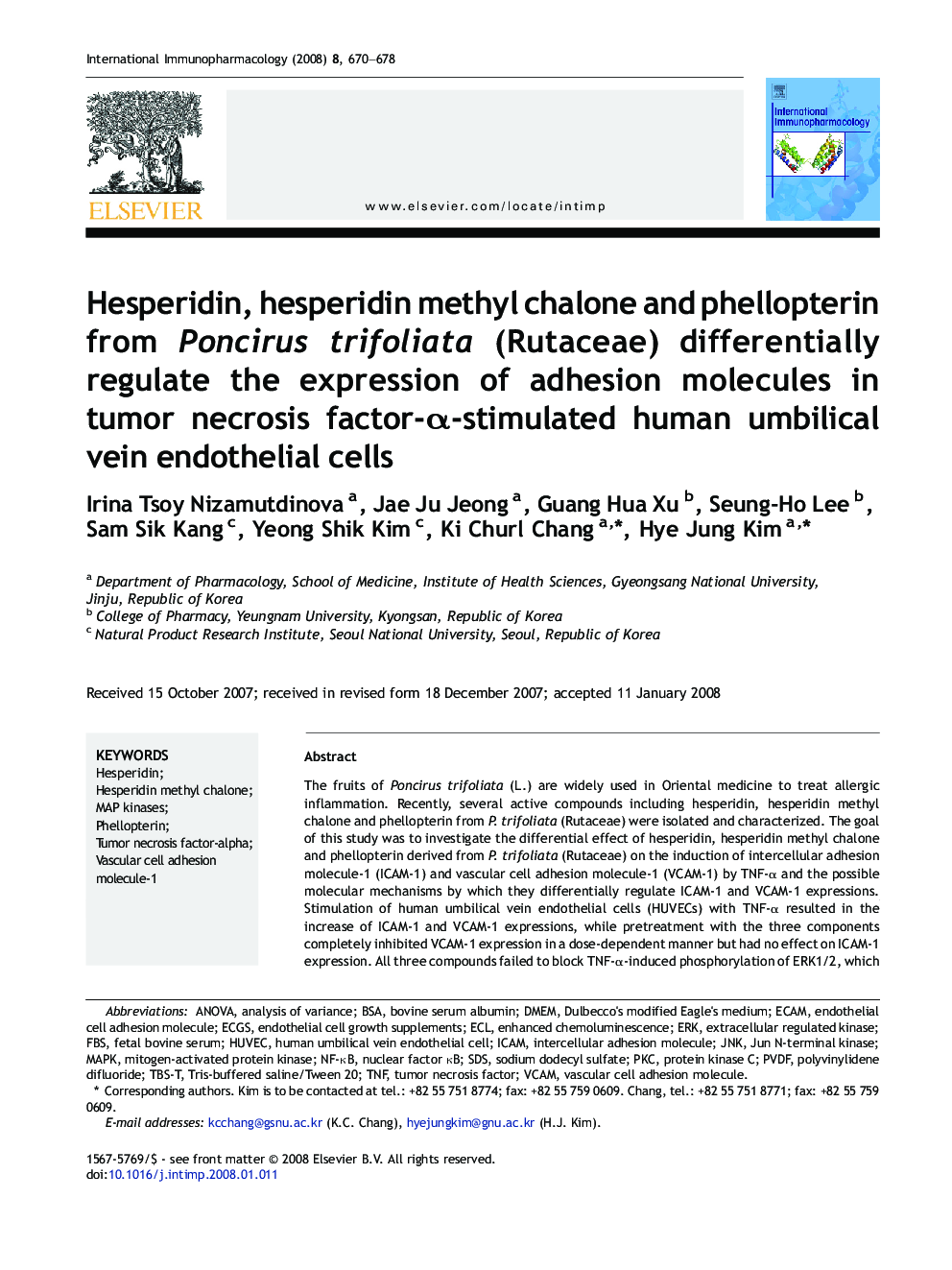| Article ID | Journal | Published Year | Pages | File Type |
|---|---|---|---|---|
| 2542127 | International Immunopharmacology | 2008 | 9 Pages |
The fruits of Poncirus trifoliata (L.) are widely used in Oriental medicine to treat allergic inflammation. Recently, several active compounds including hesperidin, hesperidin methyl chalone and phellopterin from P. trifoliata (Rutaceae) were isolated and characterized. The goal of this study was to investigate the differential effect of hesperidin, hesperidin methyl chalone and phellopterin derived from P. trifoliata (Rutaceae) on the induction of intercellular adhesion molecule-1 (ICAM-1) and vascular cell adhesion molecule-1 (VCAM-1) by TNF-α and the possible molecular mechanisms by which they differentially regulate ICAM-1 and VCAM-1 expressions. Stimulation of human umbilical vein endothelial cells (HUVECs) with TNF-α resulted in the increase of ICAM-1 and VCAM-1 expressions, while pretreatment with the three components completely inhibited VCAM-1 expression in a dose-dependent manner but had no effect on ICAM-1 expression. All three compounds failed to block TNF-α-induced phosphorylation of ERK1/2, which is involved in regulating ICAM-1 production by TNF-α. Furthermore, they efficiently inhibited the phosphorylation of Akt and PKC, suggesting that Akt or PKC pathways are an important target by which these compounds regulate TNF-α-induced VCAM-1 but not ICAM-1. Additionally, treatment with these chemicals also inhibited U937 monocyte adhesion to HUVECs stimulated with TNF-α. Interestingly, the inhibitory effect of hesperidin, hesperidin methyl chalone and phellopterin on monocyte adhesion to HUVECs was recapitulated by transfecting cells with VCAM-1 siRNA. Taken together, hesperidin, hesperidin methyl chalone and phellopterin reduce TNF-α-induced VCAM-1 expression through regulation of the Akt and PKC pathway, which contributes to inhibit the adhesion of monocytes to endothelium.
